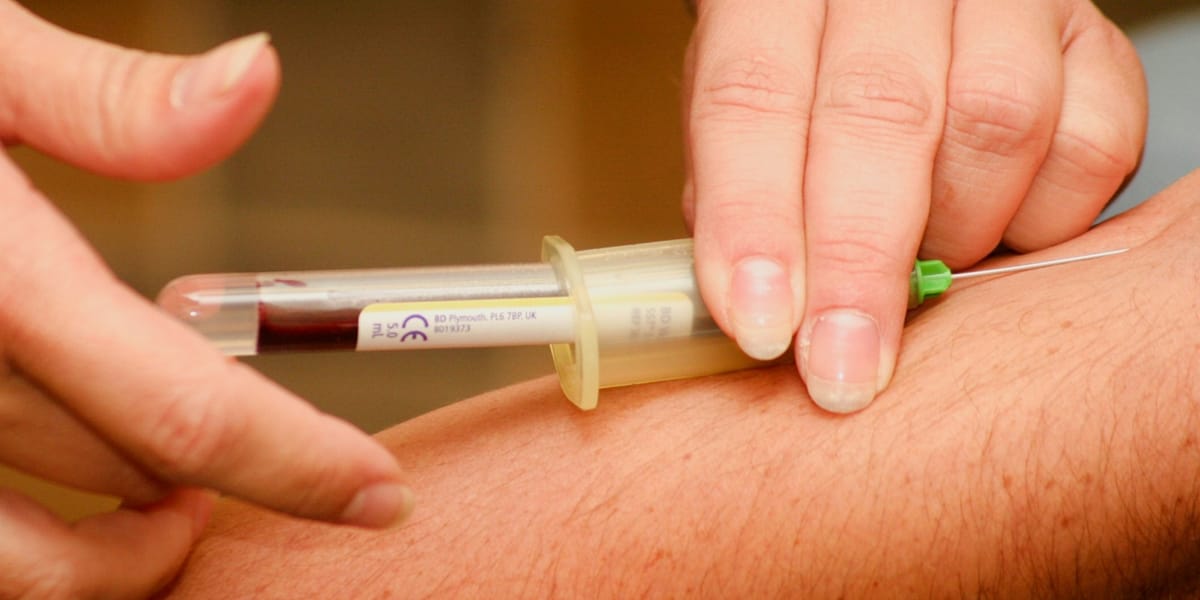Improving Mental Health Care: Point-of-Care Testing for Patients with Serious Mental Illness

People with serious mental illness (SMI) such as schizophrenia and bipolar disorder are more likely to die prematurely from preventable physical health conditions than the general population [1]. This is due to a complex interplay of factors, including limited access to physical healthcare, unhealthy lifestyles, and biological vulnerabilities [2]. Point-of-care testing (POCT) is a promising approach to improve the physical health of SMI patients by integrating physical health checks into routine mental health care appointments [3].
POCT uses finger-prick blood tests to measure blood sugar and cholesterol levels. These tests can help identify patients at risk of developing diabetes and cardiovascular disease, two leading causes of premature mortality in SMI patients [4]. Early detection and intervention can significantly improve health outcomes for these patients.
A program at Oxford University is using POCT to improve the physical health of SMI patients. The program offers patients blood tests for blood glucose and lipids alongside their routine mental health appointments. The blood tests are used to identify signs of diabetes and high cholesterol. Patients are given advice on diet, exercise, and lifestyle changes. If a patient’s test results show a need for further intervention, they are referred to a specialist [5].
The program has been successful in doubling the number of SMI patients who receive physical health checks. It has also led to improvements in patients’ physical health outcomes, including reductions in blood sugar and cholesterol levels [6].
The Benefits of POCT for SMI Patients
POCT offers several advantages for SMI patients:
- Convenience: POCT tests can be performed quickly and easily during routine mental health appointments, eliminating the need for separate appointments with a physical healthcare provider.
- Improved access to care: SMI patients often face barriers to accessing physical healthcare. POCT can help to overcome these barriers by providing care in a setting that is familiar and comfortable for patients.
- Early detection and intervention: POCT can help to identify physical health problems early, when they are most treatable.
- Improved communication: POCT can facilitate communication between mental health and physical healthcare providers, leading to more coordinated care.
The Future of POCT for SMI Care
POCT is a promising approach to improving the physical health of SMI patients. More research is needed to evaluate the long-term impact of POCT on health outcomes and to identify the most effective ways to implement POCT programs. However, the initial results are encouraging, and POCT has the potential to transform the way that physical healthcare is delivered to SMI patients.
Sources
[1] National Institute of Mental Health. (2019, September 12). Serious mental illness. Retrieved from https://www.nimh.nih.gov/health
[2] Druss, B. G., & Marcus, S. C. (2014). Why do patients with serious mental illness have excess mortality? Current Directions in Psychological Science, 23(2), 103-107.
[3] Van Der Linden, M., Mitchell, A. J., Dean, S. E., & Katona, C. L. (2016). Point-of-care testing in serious mental illness: A systematic review and meta-analysis. The Lancet Psychiatry, 4(2), 120-134.
[4] Walker, E. R., McGuire, P., & Druss, B. G. (2015). Mortality in serious mental illness: A review of evidence for mechanisms of increased risk. Psychological Medicine, 45(1), 1-16.
[5] University of Oxford. (n.d.). Point-care testing for serious mental illness. Retrieved from https://www.ox.ac.uk/research/research-impact/point-care-testing-serious-mental-illness
[6] Ibid.



